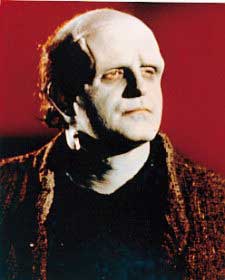Hannah got the book New Math: Equations for Living as a gift for a friend, however we all got to check it out before she wrapped it. Now this is the sort of math that I understand!
Tags: Catholicism, Christianity
"At this point," he added, "I cannot fail to mention my concern over 'de facto' couples. ... When new legislation is created that relativizes marriage, the rejection of the definitive bond gains, so to speak, juridical endorsement." Moreover, "relativizing the difference between the sexes ... tacitly confirms those bleak theories which seek to remove all relevance from a human being's masculinity or femininity, as if this were a purely biological matter."He didn't stop there, of course, Celibacy, science, and culture wars were among his topics. Gee whiz, I love this pope!
"Herein is a contempt for corporeality whence it follows that man, in seeking to emancipate himself from his body (from the 'biological sphere'), ends up by destroying himself." Against those who say that "the Church should not involve herself in these matters, we can only respond: does man not concern us too?" The church and believers "must raise their voices to defend man, the creature who, in the inseparable unity of body and spirit, is the image of God."
| You Are a Traditional Christmas Tree |
For a good Christmas, you don't have to re-invent the wheel. You already have traditions, foods, and special things you bring out every year. |
Most saints are hometown heroes, local boys and girls made good -- very good. that's not at all to diminish them. Every saint reflects the glory of Christ. But most were made saints because they were able to translate the gospel into a way of live that spoke in a special way to their time and place.I liked this book even better than I liked Scott's The Catholic Passion and you may remember that I really liked that book quite a lot.
Some saints -- a handful in the past two thousand or more years -- are sent to bear a message that transcends their moment and culture. They're raised up at critical junctures in history, when great gospel truths are in danger of being hijacked by heretics of plowed under by Christian indifference and forgetfulness.
... Catholics envision humanity -- with all its different cultures, races, and even religions -- as a single world family, a people loving one another and loving God. Mother Teresa showed us how far our world is from that. She showed us a world cleaved apart by blood and class, caste and creed, a world that fixed an impassable gulf between those who have too much and those who have nothing at all. She showed us a world in which people don't matter, especially the weak: the baby in th womb, the poor, the sick, the old. She showed us a world of people torn apart from within, not knowing who they are or what they should be about, not knowing what meaning there is to life, if any.
Mother Teresa became a household name in this world because God needed a witness, needed to send some sign that He is still on earth and that hope is growing like a seed beneath all the bleak contingencies of our days.
Mother Teresa had too much respect for the truth of her own conscience to ever fall into this trap of denying her Lord or the mission of His Church. "I love all religions but I am in love with my own," she would say. "Naturally I would like to give the treasure I have to you, but I cannot. I can only pray for you to receive it.
She earned the trust and friendship of Hindus, Muslims, Buddhists, and atheists. Many called her "Mother" and came to her for prayers and advice. But everyone knew that her heart belonged to Jesus and that she hoped that their hearts would one day belong to Him too. In this, she was a kind of missionary to missionaries, showing them new possibilities for preaching the gospel in an age of radical religious pluralism...
I must have repeated this a hundred times. I close my eyes, I open them to try to focus on the Lord by looking at Him, I close them again. Spontaneously, I pray: Have mercy on me, Lord. Instantly I can feel His presence, and I know that was the right thing to ask Him. I know all that’s between us is what I’ve put there.Brad takes us into Adoration with him. His depiction is the truest to my own sort of experience coupled with insights I really appreciate him opening up and sharing. "I know all that’s between us is what I’ve put there." No matter what separates us, isn't that the honest to goodness truth? Do go read. It is a lovely echo of a holy time.
From the second row, Brother Quentin put a hand on my shoulder, returning to his main issue with the persistence of a cop skilled at interrogation. "All I'm saying, Odd, is we need to know the name of our enemy. We don't exactly have a crew of trained warriors here. When push comes to shove, if they don't know who they're supposed to be defending against, they'll get so jittery, they'll start swinging baseball bats at one another."I don't usually like Dean Koontz's books. They are a style of horror writing that is fairly gruesome. However, the Odd Thomas books are different.
Brother Augustine gently admonished, "Do not underestimate us, Brother Quentin."
"Maybe the abbot will bless the baseball bats," said Brother Kevin from the third row.
Brother Rupert said, "I doubt the abbot would think it proper to bless a baseball bat to ensure a game-winning home run, let alone to make it a more effective weapon for braining someone."
"I certainly hope," said Brother Kevin, "we don't have to brain anyone. The thought sickens me."
"Swing low," Brother Knuckles advised, "and take 'em out at the knees.Some guy with his knees all busted ain't an immediate threat, but the damage ain't permanent, neither. He's gonna heal back to normal. Mostly."
"We have a profound moral dilemma here," Brother Kevin said. "We must, of course, protect the children, but busting knees is not by any stretch of theology a Christian response."
"Christ," Brother Augustine reminded him, "physically threw the money changers out of the temple."
"Indeed, but I've seen nowhere in the Scripture where our Lord busted their knees in the process."Brother Odd by Dean Koontz
"My name is Odd Thomas. I live an unusual life.Those two sentences came to Koontz complete and with an image of Odd Thomas himself. A disciplined writer, Koontz put these ideas aside until he finished the book he was writing at the time. I heard him talking about this on his podcast and was intrigued. I was intrigued even further when Koontz said that his fan mail for Odd Thomas far and away outstrips any other that he receives. He attributes it to the fact that Odd Thomas is completely humble. That interesting tidbit and remembering that Lofted Nest had commented on the increasingly Catholic nature of Koontz's writing, made me pick up Odd Thomas.
Civilization -- says my friend Ozzie Boone -- exists only because the world has barely enough of two kinds of people: those who are able to build with a trowel in one hand, a sword in the other; and those who believe that in the beginning was the Word, and will risk death to preserve all books for the truths they might contain.Odd Thomas is indeed completely humble and he also is striving as hard as possible to do the task assigned him in life. That task? He sees ghosts and helps convince them to move on to the next step. Odd isn't sure what awaits ghosts beyond this world but his girlfriend, Stormy, has a vision of an army of souls on some great mission in the next world. She calls this life "boot camp" and tells him that it is intended to toughed us up to serve in that army.Brother Odd by Dean Koontz
"You're a very brave young man, Jacob Calvino."
"She said ... she said don't be scared, we wasn't born to be all the time scared, we was born happy, babies laugh at everything, we was born happy and to make a better world."
"I wish I'd known your mother."
"She said everyone ... everyone, if he's rich or he's poor, if he's somebody big or nobody at all -- everyone has a grace." A look of peace came over his embattled face when he said the word grace. "You know what a grace is?"
"Yes."
"A grace is a thing you get from God, you use it to make a better world, or not use it, you have to choose."
"Like your art," I said. "Like your beautiful drawings."
He said, "Like your pancakes."
"Ah, you know I made those pancakes, huh?"
"Those pancakes, that's a grace."


 How about this adorable little Streptococcus pyogenes (flesh eating virus microbe) complete with its own knife and fork?
How about this adorable little Streptococcus pyogenes (flesh eating virus microbe) complete with its own knife and fork?Hank Hill to Christian rocker: "Can't you see that you're not making Christianity better? You're just making rock and roll worse."That is one of Tom's favorite quotes. It's funny because it's true.
Since the Contemporary Christian Music has done so much to sidetrack Christian musicians so their music doesn't accidentally end up in arenas where the world might hear it... why not create Contemporary Christian Cinema? That way, faith-related films can play to those who already agree with their messages, and to those who don't want to bother with the challenges of mainstream movies. Meanwhile, mainstream audiences can put even more distance between themselves and films that openly wrestle with issues of faith. They'll spot the "faith" label, feel a shiver run down their spine, and move on to something else.To me, this connects in a beautiful way with a brilliant post that Melanie Bettanelli wrote about Santa Claus. This is a lengthy excerpt but it is not all and you do yourself a disservice if you don't go read it all. As I said ... brilliant.
Walls and boundaries. That's what we want. Neat and easy labels and categories. All the better for judging other people, for staying where we are, for complimenting ourselves on our choices.
No matter what the industry does to try and fence in me and my Christian faith, it won't work. I won't preoccupy myself with "Christian moviemaking" any more than I'll spend time shopping for "Christian groceries." I'll keep exploring questions in the open sea of artmaking, fully convinced that God is revealing himself in the art of all kinds of people. After all, they're all made in his image, and they're all using his materials, so how can they possibly hope to stifle the truth? I'll keep finding God as he peers out through the beauty and the truth that resonate in the works of even the most defiantly irreligious.
If I see a "faith" label on a film, it'll automatically make me suspicious that the work is preachy and mediocre. And more than likely it's obvious enough and simplistic enough to qualify as entertainment for a six-year-old. If I sound a little too judgmental here, well, what do you expect when decades of preachy, mediocre, connect-the-dots "Christian art" have shaped my opinions?
My advice to Christians who make movies? Make them complex enough, powerful enough, beautiful enough, and subtle enough that they can never be dismissed as movies for that "faith-based" audience and ignored by people who want something challenging.Jeffrey Overstreet commenting on the Weinsteins beginning a faith-based movie line
One day this [violently anti-Christian] friend said to my sister that if Christ is like Aslan, then perhaps that is the kind of Christ she could wish were real. Well, I was raised on Narnia and I strongly suspect that my image of Christ has strong doses of Aslan in him. Because I think Aslan is a very good icon of Christ indeed.Think of how subtly God gets our attention so much of the time. Through nature or "coincidences" or things we read or something a friend says. He doesn't show up in a vision of glory every time we need to get a message. The glorious sunset that bespeaks His creation to me may be touching someone else's heart with a specific message that He has prepared. For a third person it may simply be beautiful but may be softening them up for further communications in an unknown way. And it is sent to all, without any special genres or labels on it. We could do much worse than to model ourselves on that method.
And to me that's one of the wonders of fairy tales like The Chronicles of Narnia, that its beautiful art which can evangelize the culture. Sew seeds in hearts that are not yet ready to hear the gospel message, that are firmly closed to any mention of Christ. And slowly they warm, thaw: If Christ is like Aslan, then maybe Christ isn't so bad after all. Maybe he's a God I could believe in.
Many Christians hailed The Lord of the Rings for that same reason. There is no mention of Christ or God, no one in the book seems to have any faith at all. And yet every word, every action proclaims the gospel message. For it is a story about a small man, a hobbit, a weak, inconsequential nobody who willingly bears a great burden expecting no benefit for himself, indeed expecting destruction at every step. It's about what it means to be a follower of Christ, to pick up one's cross every day and lay down your life for your friends and for those you don't even know.
To me the Santa story is the same thing. In its modern, secular rendition there might be no mention of Christ, in fact it might seem to lead one into a fantasy realm where there is no room for Christ. And yet He is there. It's the story of a man who somehow, miraculously gives abundantly, perhaps even prodigally, to everyone regardless of who they are or their state in life and expecting no return for himself. It's about the miraculous ability to be everywhere at once, impossibly in one night.
To me Santa is the image of the prodigal love of Jesus, pouring himself out for everyone expecting no return for himself. It reflects the miracle of the Eucharist, (just think of Christ on a thousand altars all over the world in one night on Christmas Eve).
